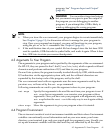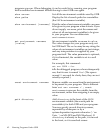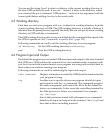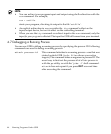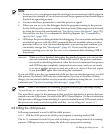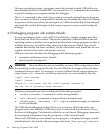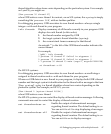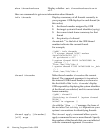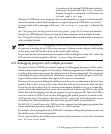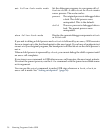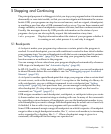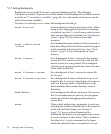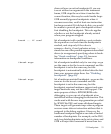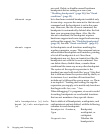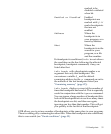show threadverbose Display whether set threadverbose is on or
off.
Here are commands to get more information about threads:
info threads
Display a summary of all threads currently in
your program. GDB displays for each thread (in
this order):
1. the thread number assigned by GDB
2. the target system's thread identifier (systag)
3. the current stack frame summary for that
thread
4. the priority of a thread
An asterisk '*' to the left of the GDB thread
number indicates the current thread.
For example,
((gdb)) info threads
* 3 system thread 26607 worker
(wptr=0x7b09c318 "@") \
at quicksort.c:137
2 system thread 26606 0x7b0030d8 in
__ksleep () \
from /usr/lib/libc.2
1 system thread 27905 0x7b003498 in _brk
() \
from /usr/lib/libc.2
thread threadno Make thread number threadno the current
thread. The command argument threadno is
the internal GDB thread number, as shown in
the first field of the 'info threads' display.
GDB responds by displaying the system identifier
of the thread you selected, and its current stack
frame summary:
((gdb)) thread 2
[Switching to thread 2 (system thread
26594)]
0x34e5 in sigpause ()
As with the '[New ...]' message, the form of
the text after 'Switching to' depends on your
system's conventions for identifying threads.
thread apply [threadno]
[all] args
The thread apply command allows you to
apply a command to one or more threads. Specify
the numbers of the threads that you want affected
with the command argument threadno.
48 Running Programs Under GDB




